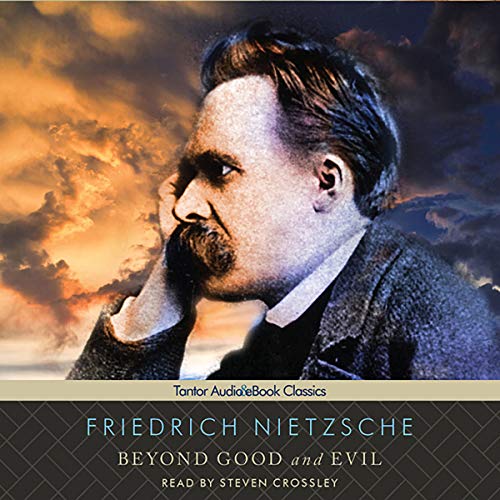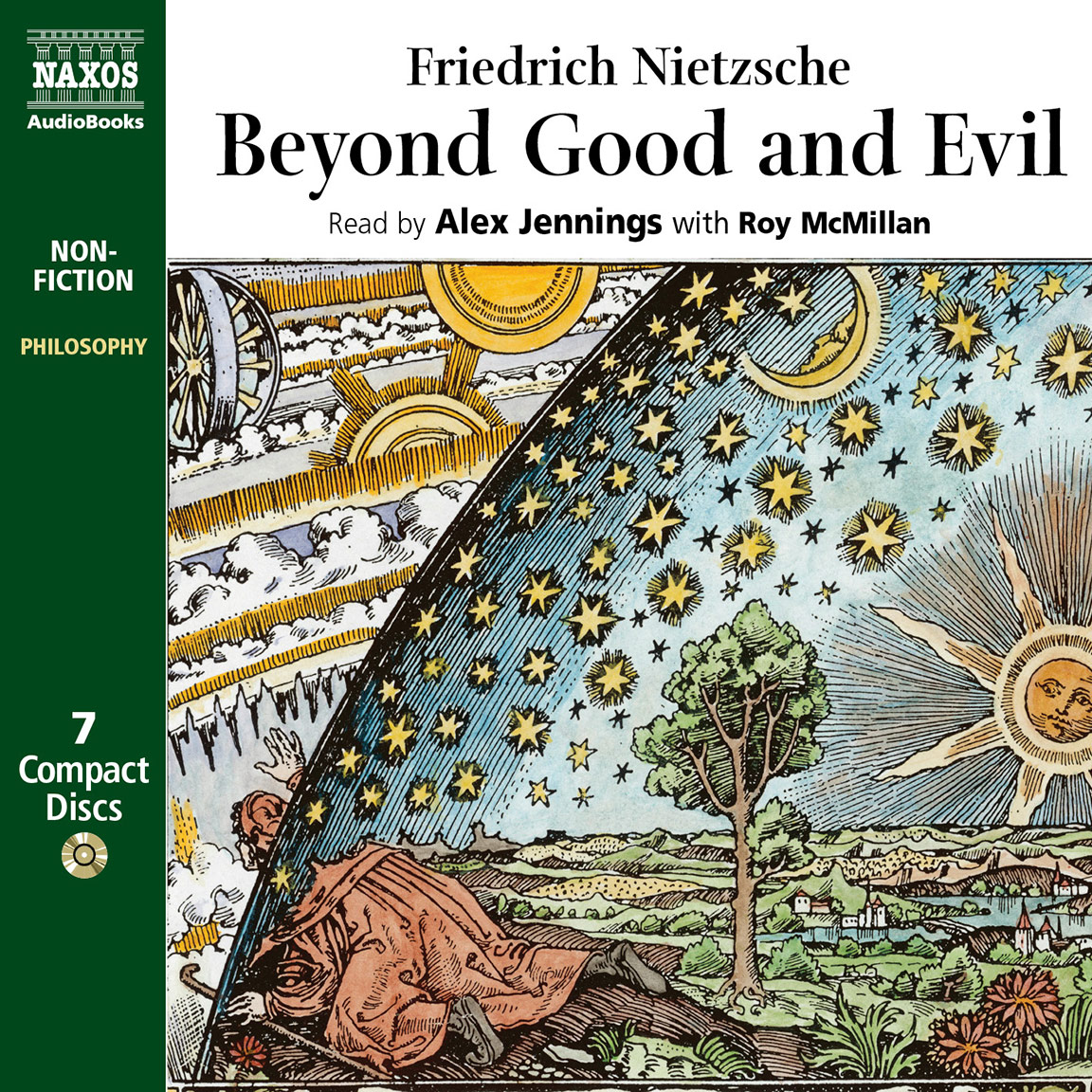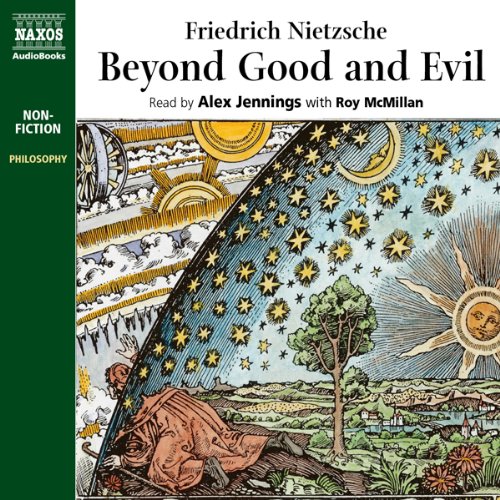Friedrich Nietzsche’s “Beyond Good and Evil” audiobook delves into philosophy and critiques traditional moral values. It challenges conventional thinking and promotes individualism.
“Beyond Good and Evil” by Friedrich Nietzsche is a profound philosophical work that questions established moral norms. Nietzsche explores the depths of human nature, urging readers to look beyond societal conventions. His sharp critique of traditional morality encourages individuals to forge their own paths.
The audiobook format brings Nietzsche’s powerful prose to life, making it accessible for modern audiences. Listening to “Beyond Good and Evil” allows one to grasp Nietzsche’s complex ideas in an engaging way. This masterpiece remains a cornerstone in philosophical literature, offering timeless insights into the human condition. Discover Nietzsche’s revolutionary thoughts and gain a deeper understanding of morality and individualism.

Credit: www.audible.com
Nietzsche’s Magnum Opus
Friedrich Nietzsche’s “Beyond Good & Evil” is a groundbreaking work. This book challenges conventional morality. It questions the foundations of Western thought. The audiobook brings Nietzsche’s ideas to life. Listening to it reveals the depth of his philosophy.
Origins And Context
Nietzsche wrote “Beyond Good & Evil” in 1886. He aimed to critique past philosophers. He believed they lacked critical thinking. Nietzsche wanted to expose their hidden biases. He saw their work as bound by morality.
He lived during a time of great change. The 19th century was full of scientific discoveries. These changes influenced his thinking. Nietzsche felt traditional beliefs were outdated. He sought to create a new way of thinking. His work was revolutionary and controversial.
Core Themes
“Beyond Good & Evil” explores several core themes. Morality is a major focus. Nietzsche challenges the idea of absolute good and evil. He sees morality as subjective.
- Will to Power: Nietzsche introduces this concept. He believes all life seeks to assert power.
- Master-Slave Morality: He contrasts two types of morality. Master morality values pride and strength. Slave morality values kindness and empathy.
- Truth: Nietzsche questions the concept of absolute truth. He suggests truth is a matter of perspective.
“Beyond Good & Evil” is rich in complex ideas. The audiobook makes these ideas accessible. It helps listeners grasp Nietzsche’s revolutionary thoughts. This work remains influential today.
Deciphering Beyond Good & Evil
Friedrich Nietzsche’s Beyond Good & Evil challenges conventional morality. The audiobook invites listeners to rethink ethics and human nature. This section deciphers the key themes in the book.
Morality And Nihilism
Nietzsche questions traditional morality. He believes it limits human potential. He introduces the concept of nihilism, which means rejecting established values. Nihilism can lead to a crisis. Nietzsche sees it as an opportunity for growth. He urges people to create their own values.
Will To Power
The Will to Power is a central idea in Nietzsche’s work. He suggests that life is driven by a fundamental force. This force is the will to power. It is about achieving and asserting one’s strength. The will to power motivates creativity and ambition. It is not just about domination. It also includes self-improvement and overcoming obstacles.
Master-slave Morality
Nietzsche introduces the concept of Master-Slave Morality. Master morality values pride and strength. Slave morality values kindness and empathy. Nietzsche believes society has shifted towards slave morality. He criticizes this shift as limiting human potential. Master morality encourages personal excellence and self-assertion. Slave morality, in contrast, promotes mediocrity and conformity.
| Concept | Description |
|---|---|
| Morality and Nihilism | Challenges traditional values, promotes creating one’s own values. |
| Will to Power | Life driven by a fundamental force of achieving strength. |
| Master-Slave Morality | Contrasts values of pride and strength vs. kindness and empathy. |
Understanding these concepts is key to grasping Beyond Good & Evil. The audiobook provides a deep dive into these philosophical ideas.
Impact And Legacy
Friedrich Nietzsche’s “Beyond Good and Evil” is a cornerstone in modern philosophy. The audiobook version brings his ideas to new audiences. This section explores its impact and legacy in the world of thought.
Influence On Modern Thought
Nietzsche challenged traditional moral values. He introduced the concept of the Übermensch or “Overman”. This idea inspired many thinkers and writers.
- Sigmund Freud used Nietzsche’s ideas in psychoanalysis.
- Jean-Paul Sartre incorporated existential themes from Nietzsche.
- Friedrich Hayek saw Nietzsche’s influence in economic theory.
Nietzsche’s work also influenced art and literature. Writers like Franz Kafka and Thomas Mann drew from his concepts. His critique of religion and morality sparked debates in theology and ethics.
Controversies And Misinterpretations
Nietzsche’s ideas often sparked controversy. Some misinterpreted his work to justify harmful ideologies.
| Misinterpretation | Actual Intent |
|---|---|
| Nazi Ideology | Nietzsche opposed anti-Semitism. |
| Moral Nihilism | He sought to create new values. |
Nietzsche’s sister, Elisabeth Förster-Nietzsche, edited his works. She altered his writings to align with her own views. This led to further misunderstandings.
Despite controversies, Nietzsche’s work remains significant. His bold ideas continue to inspire and provoke thought.

Credit: www.simonandschuster.com

Credit: naxosaudiobooks.com
Conclusion
Exploring Nietzsche’s “Beyond Good & Evil” through an audiobook can deepen your philosophical understanding. Engaging with his ideas in audio format offers a unique experience. This audiobook is perfect for those seeking profound insights. Don’t miss the chance to enrich your mind with Nietzsche’s revolutionary thoughts.
Dive in and expand your philosophical horizons today.



